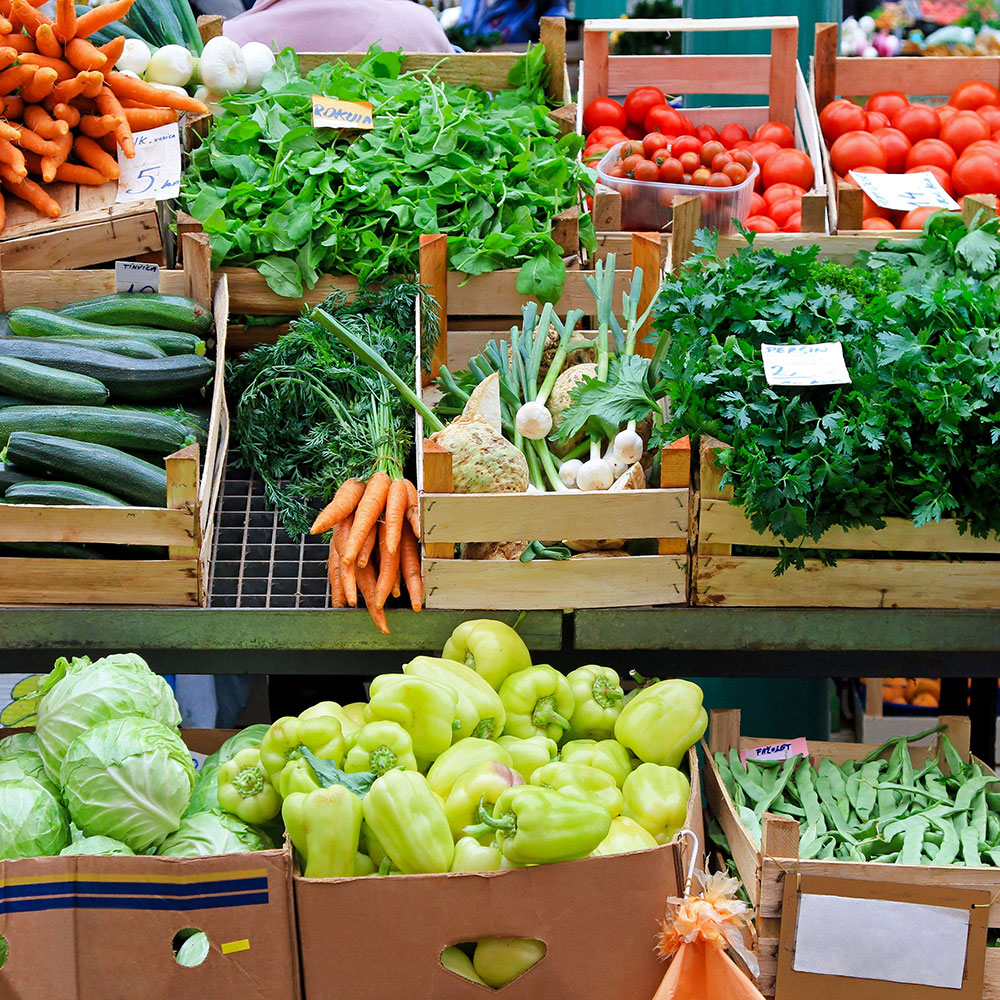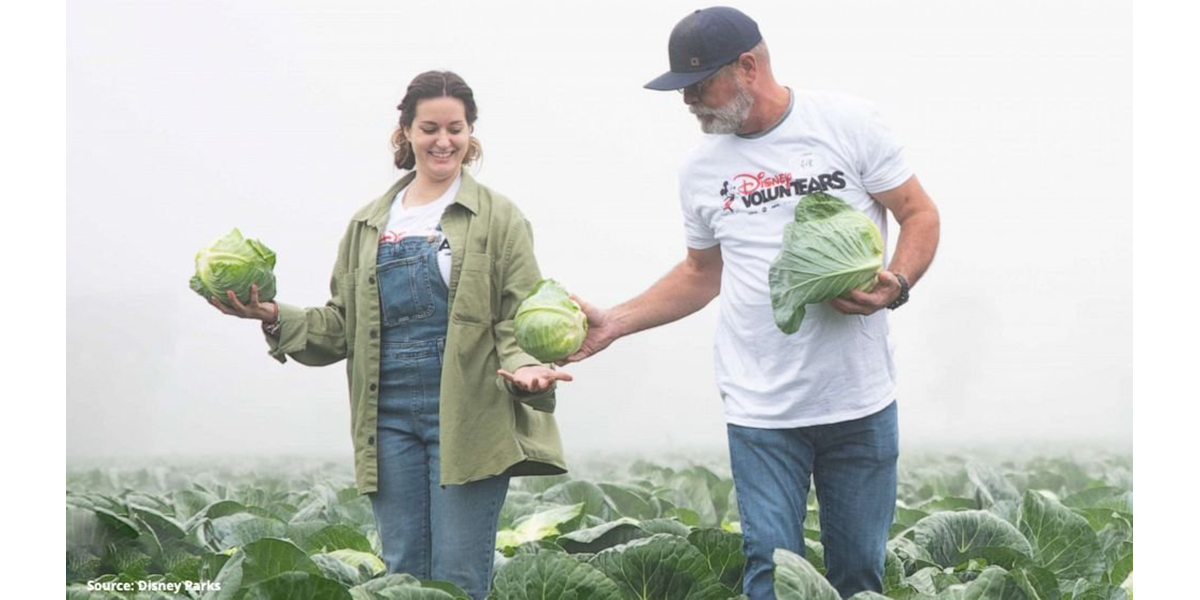Dear Colleagues,
Happy Earth Month and Stop Food Waste Day! While it’s always Earth Day for those of us in the sustainability space, the holiday serves as a great reminder of how important large scale food waste solutions are to mitigating the climate crisis and protecting our planet.
Along these lines, I am so excited to share that the World Wildlife Fund, the Harvard Law School Food Law and Policy Clinic, Natural Resources Defense Council, and ReFED released a series of policy recommendations entitled “Opportunities to Reduce Food Waste in the 2023 Farm Bill.” I had the privilege of reviewing early drafts of the report which outlines 22 core recommendations for Congress to tackle food waste in the upcoming Farm Bill. This presents a critical opportunity for Congress to take concrete steps to reach our national goal of cutting food waste in half by 2030, while also promoting a circular food economy, regenerative agriculture, and food security.
In addition to the report, I wanted to highlight just a few of the many colleagues who inspire me through their work. Check out what’s giving them hope this Earth Month and beyond:
Anna Hammond, Founder and CEO, Matriark Foods:
“The future is bright for upcycling because there’s a growing understanding of the multifaceted nature of food waste, including its contribution to emissions and its paradoxical nature in the face of food insecurity. I think we’re seeing a revolution of ideas related to the circular economy, which will make the world a better place.”
Yvette Cabrera, Director, Food Waste, Natural Resources Defense Council:
“I’m excited about the flurry of programs and policies at the local, state and federal level focused on food waste reduction solutions, like composting. This amazing song about compost in NYC has put a huge smile on my face and I hope everyone will listen!”
Sue Marshall, Founder and CEO, NETZRO:
“Young people not only make me feel optimistic about the future of food, they give me hope. Their passion for change in connecting us to where our food comes from and making a difference to combat the effects of climate change is the path to a better food future.”
Jackie Suggitt, Director of Capital, Innovation and Engagement, ReFED:
“The last two years have forced us to make changes that should have been made a long time ago. I find optimism in the speed of innovation, the increase of investment, and the willingness to collaborate pre-competitively. Our food system has become “dinner table conversation” (pun intended), and I’m excited to see increased awareness of the challenges and increased participation in the creation of solutions.”
Turner Wyatt, CEO, Upcycled Food Association:
“I am so excited that I just found the Upcycled Certified mark ‘in the wild’ for the first time. I could feel the climate-saving potential in my excitement to get home and bake some upcycled cookies.”
As you can see, we’ve switched up the newsletter format in an effort to provide the most value to our audience. If you have any feedback on things you’d like to see more of, don’t hesitate to reach out!
Yours in partnership,
Eva
What We’re Reading
Reducing Food Waste is an Overlooked Solution to Saving Endangered Species – Anthropocene Magazine
A new study found that halving the United States’ food waste could massively reduce rates of biodiversity loss: researchers found that 20% of the land required to produce food for American consumers occurs outside the country, and this land represents 39% of the biodiversity risk driven by US diets. Cutting food waste by half would take huge amounts of pressure off of farmland and cut biodiversity loss by 17%.
Upcycled Certified Program Expands to Canada – Candy Industry
Upcycled Certified is now expanding north, further validating the need for the Upcycled industry internationally, not just the United States.
The Field Report: New UN Climate Report Urges Food Systems Solutions — Before It’s Too Late – Civil Eats
The latest installment of the UN’s IPCC report affirms the need for fossil fuel-phaseout; report authors posit that food systems solutions can provide nearly 1/3 of the carbon reductions necessary to stop climate warming trends.
How Disney Parks Fight Food Waste with Redirected Meals for Food Banks, Farms and More – Good Morning America
Through their Disney Planet Positive initiative, which includes things like seasonal menu planning, localized sourcing and partnering with food banks, the company aims to create a circular food journey in its parks.
Food and AgTech Investments Don’t Stack Up with Climate Needs – GreenBiz
An analysis of last year’s food system investments points to a large amount of funding, nearly 35%, going to eGrocery. Investors are missing the mark on deforestation, methane reduction and carbon sequestration, relative to their carbon reduction potential.
Consumer Awareness of Food’s Environmental Impact is Slowly Growing – Food Dive
According to a new report, more than a quarter of consumers think about the environmental impact of the food they buy at the grocery store. Researchers also predict that by 2030, the majority of US consumers’ food choices will be climate-conscious.
Farmstead Uses Proprietary Tech to Help Reduce Food Waste – Progressive Grocer
Online grocery Farmstead has begun incorporating an “Eat this First” section into their receipts, informed by their digitized industry control. As sell-by dates have proved unreliable for consumers, this is a great solution to encourage quick use of perishable groceries.
ReFED 2021 Annual Impact Report — Following the Roadmap to Cut Food Waste
The ReFED team recaps their accomplishments in the food waste space, from co-authoring the U.S Food Loss & Waste Policy Action Plan to founding their Insights Engine, a knowledge hub providing food waste information to cross-industry stakeholders.

